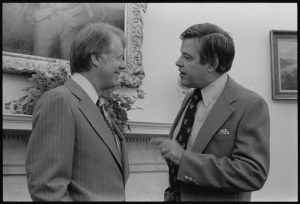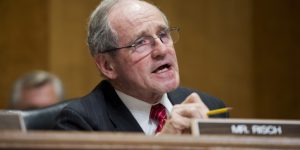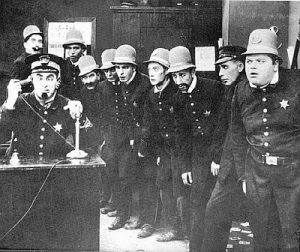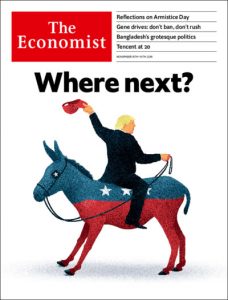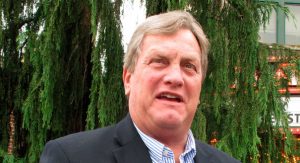Idaho Sen. Jim Risch became chairman of the prestigious Foreign Relations Committee last week and as nearly his first act he bashed the two Idahoans who held that position in the past, William Borah and Frank Church.
In an interview with Idaho Press reporter Betsy Russell, Risch also said his “repertoire does not include sparring publicly with the president of the United States. For many, many different reasons, I think that’s counterproductive, and you won’t see me doing it.”
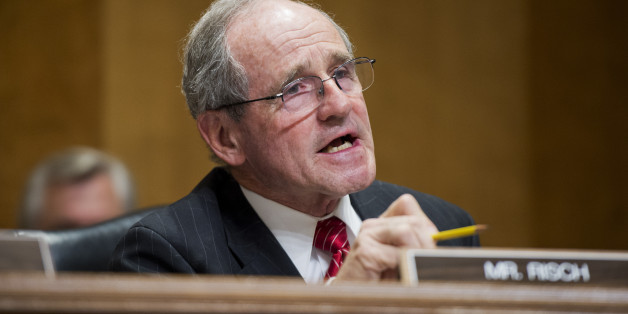
In one interview, the new chairman offered a remarkable display of historical ignorance, senatorial obsequiousness, hubris and blind partisanship. Call it “the Risch Doctrine.”
Let’s take them one by one.
“William Borah was around at the time when it was very fashionable, and indeed you could get away with non-involvement in a great matter of international affairs,” Risch told Russell.
The senator is correct that Borah, who represented Idaho in the Senate for 33 years, was, to say the least, skeptical about an aggressive U.S. foreign policy. More correctly, Borah was a non-interventionist, an anti-imperialist and a politician who believed passionately that the Senate must exercise a significant role in developing the country’s foreign policy. He would have been the last to say he would avoid “sparring publicly” with a president. He did so repeatedly, including with presidents of his own Republican Party.
Borah’s determined opposition to the peace treaty after World War I was based in large part on Woodrow Wilson’s arrogance in insisting that the Senate rubber stamp his handy work, accepting his terms or no terms.
Sounds familiar, doesn’t it?
Risch says he has his disagreements with President Donald Trump, but you’d be hard to pressed to find even one, while his record is ripe with acquiescence to an administration whose foreign policy from Syria to North Korea and from NATO to Saudi Arabia feels more unhinged, more chaotic by the day.
While Borah elevated the Foreign Relations Committee to something approaching equal standing with Republican presidents such as Calvin Coolidge and Herbert Hoover, Risch is first and last a partisan, even to the point of going down the line with Trump, while many other Senate Republicans broke with him this week over sanctioning a Russian oligarch. With a Democrat in the White House, Risch was never reluctant to bash a foreign policy decision. His “sparring” was always in plain sight. Now, it’s all quiet on the Risch front.
Risch also could not refrain from repeating an old smear against Sen. Frank Church, effectively accusing Church of weakening the nation’s intelligence agencies.
“In my judgment,” Risch said, Church “did some things regarding our intelligence-gathering abilities and operations that would not serve us very well today. We need a robust intelligence operation.”
We have a robust intelligence operation, one that has frequently made serious mistakes that require constant vigilance from U.S. senators.
Risch should know this. He’s on the Senate Intelligence Committee, but he has repeatedly excused Trump’s own disregard, indeed contempt, for intelligence agencies, including dismissal of an FBI director who was just a bit too independent for Trump’s taste. You have to wonder if the new chairman has read even a summary of Church’s still very relevant work.
What Church’s landmark investigation really did in the 1970s was to explain to the American people, as UC-Davis historian Kathryn Olmsted told me this week, “what the CIA and FBI and other agencies had been doing in their name during the height of the Cold War.” As professor Olmsted, a scholar of American intelligence and its oversight noted, Church’s investigation “revealed many abuses and some crimes that had been committed, for example, by the CIA.”
One of those crimes was spying on American citizens. The National Security Agency actually conducted mail and phone surveillance on Church and Republican Sen. Howard Baker.
“Thanks to the Church Committee,” Olmsted wrote, “we now know that the CIA engaged mafia dons to stab, poison, shoot and blow up Fidel Castro; that it tried to poison Patrice Lumumba’s toothpaste and that it hired goons to kidnap the general in Chile who was trying to uphold his country’s constitutional democracy and thus stood in the way of a U.S.-backed coup. (He was killed in the course of the kidnapping.) The committee also revealed the FBI’s infamous COINTELPRO program, including the harassment of Martin Luther King Jr.”
Church didn’t weaken the intelligence community — he held it accountable. His work created the modern framework for congressional oversight, that is if Congress would use the power of oversight, and Church’s investigation led to the protections of the so-called FISA court that requires a judge to sign off on surveillance of a kind that the intelligence agencies once initiated on their own.
“This is a great time to be a Republican,” Risch told a partisan crowd at a Lincoln Day dinner in Shoshone last week. “You will not hear about this in the national media, but we have done a great job running this country.” Quite a line to utter while a quarter of the federal government remains shut down and while the president is operating with an “acting” chief of staff, Interior secretary, Office of Management and Budget director, attorney general, Defense secretary and has yet to even nominate ambassadors to a couple dozen countries.
Jim Risch, the committed partisan, has always been the kind of politician focused on his next election. He’s up in 2020 in what should be one of the safest seats in the country and he’s put all his chips on Trump.
But what if things are different in a few months or in a year? What if Robert Mueller’s investigation unspools a web of corruption that makes President Richard Nixon and Watergate look like a third-rate burglary? What if Risch has bet on the wrong guy?
He’s standing on the rolling deck of the USS Trump right now, raising nary a question about a president implicated in scandal from porno payoffs to Russian collusion. The super-partisan will never change, but his hubris may yet — and again — get the best of him.
—–0—–

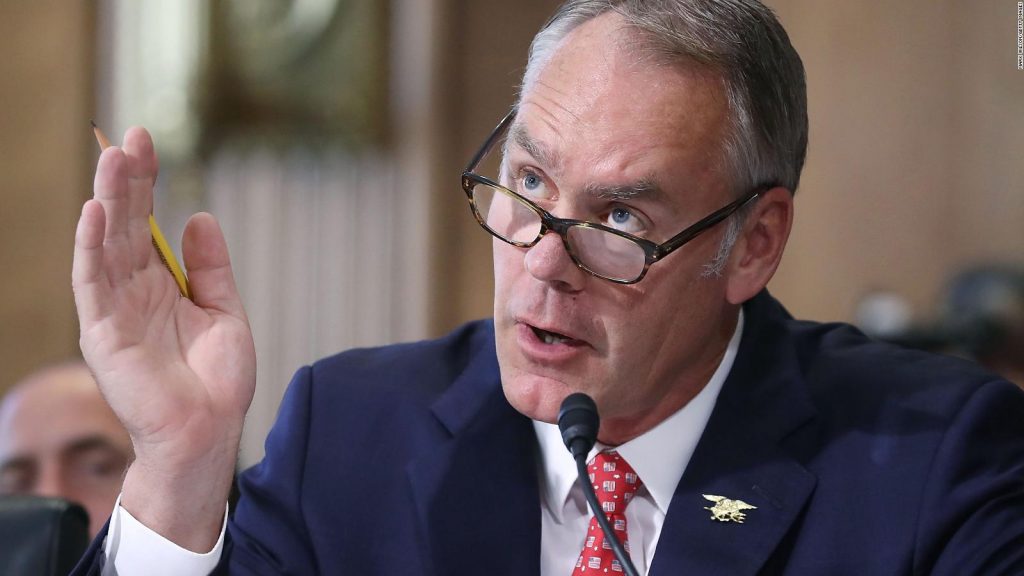
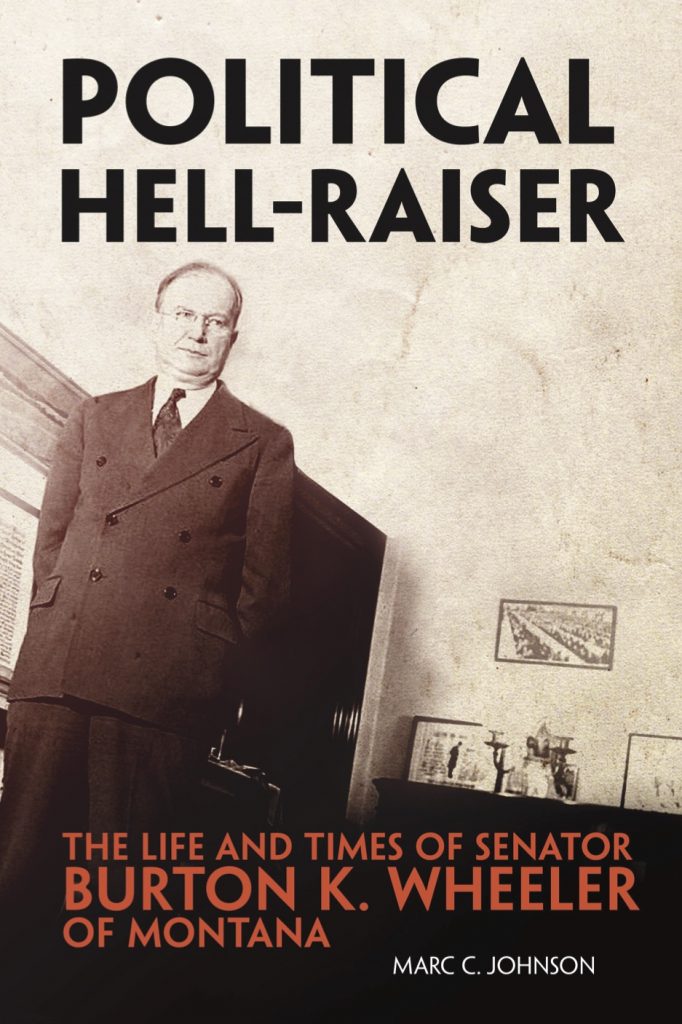
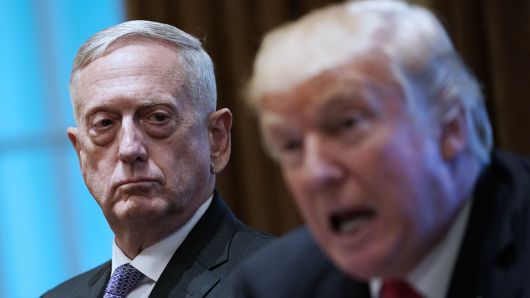

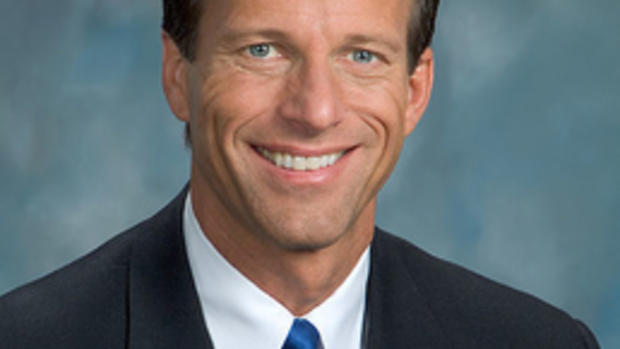
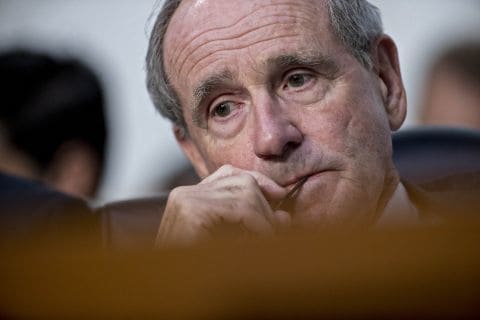




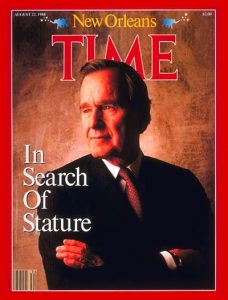
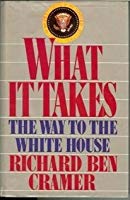

 This group includes two scientists I talked with this week who wrote chapters of the National Climate Assessment dealing with the Pacific Northwest.
This group includes two scientists I talked with this week who wrote chapters of the National Climate Assessment dealing with the Pacific Northwest.